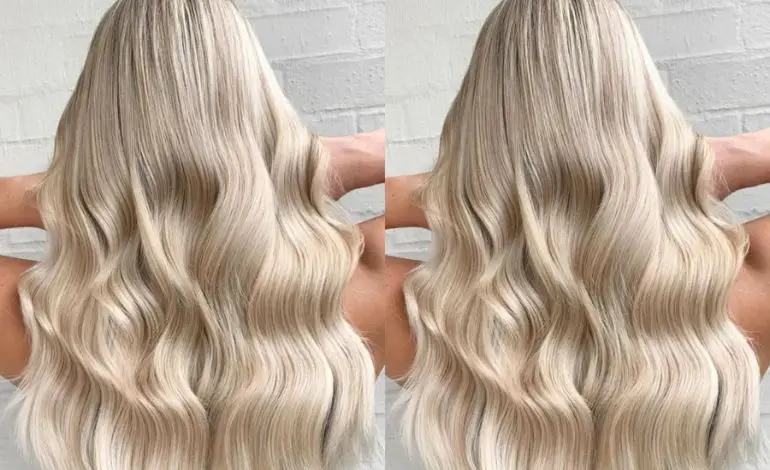Deep conditioning is a crucial step in any hair care routine, helping to maintain moisture, improve hair health, and enhance overall appearance. However, determining how often to use a deep conditioner can be confusing. Factors such as hair type, texture, and current condition all play a role in determining the frequency of deep conditioning. In this article, we’ll explore the ins and outs of deep conditioning and provide you with practical tips on how often you should be incorporating this treatment into your hair care regimen.
Understanding Deep Conditioning
Deep conditioning is a specialized treatment that goes beyond regular conditioning. It involves using a thick, nutrient-rich conditioner to penetrate the hair shaft and provide intense hydration and nourishment. Unlike daily conditioners, which are designed to be rinsed out quickly, deep conditioners are often left on the hair for an extended period, allowing the ingredients to work their magic.
Deep Conditioner vs. Regular Conditioner
Regular conditioners are designed to smooth the hair’s outer cuticle layer and provide a quick dose of moisture. Deep conditioners, on the other hand, contain higher concentrations of conditioning agents and are formulated to penetrate deeper into the hair shaft.
How Deep Conditioning Benefits Your Hair
Moisture Retention
Deep conditioning helps to lock in moisture, preventing dryness and breakage.
Improves Elasticity
It enhances the hair’s ability to stretch without breaking, reducing the risk of damage.
Strengthens Hair
Deep conditioners contain proteins that fortify the hair shaft, making it stronger and more resilient.
Enhances Shine
By smoothing the hair cuticle, deep conditioning can make your hair appear shinier and more lustrous.
Frequency of Deep Conditioning
The frequency of deep conditioning depends on several factors, including your hair type, current condition, and lifestyle. Generally, it’s recommended to deep condition once a week for most hair types. However, those with very dry or damaged hair may benefit from more frequent treatments, while those with oily hair may find that once every two weeks is sufficient.
How to Deep Condition
Cleanse
Start with clean, damp hair. Shampoo your hair as usual and gently squeeze out excess water.
Apply
Distribute a generous amount of deep conditioner evenly throughout your hair, focusing on the ends where damage is most likely.
Time
Cover your hair with a shower cap or towel and leave the deep conditioner on for the recommended time (usually 20-30 minutes).
Rinse
Thoroughly rinse out the deep conditioner with lukewarm water. For added shine, finish with a cool water rinse.
Tip: For an extra boost of hydration, consider using a deep conditioning mask or leaving your conditioner on overnight for a deep overnight treatment.
Factors to Consider
When determining how often to use a deep conditioner, several factors come into play. Understanding these factors can help you establish a deep conditioning routine that works best for your hair type and lifestyle. Here are some key considerations:
1. Hair Type
Curly or Coily Hair

Curly and coily hair types tend to be drier and benefit from more frequent deep conditioning, typically once a week or more.
Straight or Fine Hair
Straighter or finer hair may become weighed down with too much moisture, so deep conditioning once every two weeks may be sufficient.
2. Hair Condition
Dry or Damaged Hair
Hair that is dry, damaged, or chemically treated can benefit from more frequent deep conditioning to help restore moisture and strength.
Healthy Hair
If your hair is in good condition, less frequent deep conditioning may be needed to maintain its health.
3. Lifestyle
Environmental Factors
Exposure to sun, wind, and pollutants can dry out the hair, necessitating more frequent deep conditioning.
Styling Habits
Heat styling and chemical treatments can damage the hair, so those who frequently style their hair may need to deep condition more often.
4. Product Buildup
- Over time, product buildup can occur on the hair, preventing deep conditioner from penetrating effectively. Regular clarifying or cleansing shampoos can help remove buildup and ensure deep conditioners work properly.
5. Seasonal Changes
- The needs of your hair may change with the seasons. For example, you may need more frequent deep conditioning in the dry winter months compared to the humid summer months.
6. Personal Preference
- Ultimately, how often you deep condition is a personal choice. Some people may find that their hair responds well to more frequent treatments, while others may prefer less frequent deep conditioning.
By considering these factors, you can determine a deep conditioning routine that keeps your hair healthy, hydrated, and looking its best.
Frequency Recommendations
Determining how often to use a deep conditioner depends on several factors, including your hair type, current condition, and lifestyle. Here are some general guidelines to help you find the right frequency for your hair:
1. Hair Type
Curly or Coily Hair
Curly and coily hair textures tend to be drier and benefit from more frequent deep conditioning. Aim for once a week or every other week.
Straight or Wavy Hair

Straight and wavy hair may not need as much deep conditioning. Once every two weeks or once a month may be sufficient.
2. Hair Condition
Damaged or Chemically Treated Hair
If your hair is damaged or chemically treated (e.g., colored, permed), you may need to deep condition more often to help repair and maintain its health. Consider deep conditioning once a week.
Healthy Hair
If your hair is in good condition, you may only need to deep condition once every two weeks or once a month for maintenance.
3. Lifestyle
Heat Styling
If you frequently use heat styling tools (e.g., flat irons, curling irons), your hair may benefit from more frequent deep conditioning to counteract heat damage. Aim for once a week.
Swimming
Chlorine and saltwater can strip the hair of moisture. If you swim regularly, consider deep conditioning after every swim or at least once a week.
4. Moisture Levels
Dryness
If your hair tends to be dry, you may need to deep condition more often to help maintain moisture levels. Aim for once a week or as needed.
Normal to Oily Hair

If your hair is on the oilier side, you may not need to deep condition as frequently. Once every two weeks or once a month may be sufficient.
5. Experiment and Adjust
Trial and Error
Finding the right frequency for deep conditioning may require some trial and error. Start with a frequency based on your hair type and condition, and adjust as needed based on how your hair responds.
Listen to Your Hair
Pay attention to how your hair looks and feels. If it feels dry or brittle, it may be a sign that you need to deep condition more often. If it feels weighed down or greasy, you may be deep conditioning too frequently.
Tip: It’s essential to strike a balance with deep conditioning. While regular deep conditioning can benefit your hair, overdoing it can lead to product buildup and weigh down your hair. Adjust your frequency based on your hair’s needs to keep it healthy and hydrated.
How to Tell If You’re Overdoing It
While deep conditioning is beneficial for your hair, it’s possible to overdo it, leading to potential issues such as product buildup and weighed-down hair. Here are some signs that you may be deep conditioning too frequently:
Hair Feels Greasy or Heavy
- If your hair feels greasy or heavy shortly after deep conditioning, it may be a sign that you’re using too much product or deep conditioning too often.
Lack of Volume
- Over-conditioned hair can appear limp and lack volume, as the weight of the conditioner can flatten the hair.
Difficulty Styling
- Over-conditioned hair may be challenging to style, as it can be too soft and lacking in texture.
Product Buildup
- Using deep conditioner too frequently can lead to product buildup on the scalp and hair, which can leave a residue and make the hair appear dull and lifeless.
Hair Feels Mushy or Elastic
- Over-conditioned hair can feel overly soft and mushy when wet and may even stretch excessively, which is a sign of over-moisturized hair.
Increased Breakage
- While deep conditioning helps to strengthen the hair, overdoing it can lead to increased breakage due to weakened protein bonds.
Scalp Issues
- Over-conditioning can also lead to scalp issues such as itchiness or flakiness, as the excess product can clog pores and irritate the scalp.
If you notice any of these signs, it may be time to cut back on your deep conditioning routine. Consider reducing the frequency of deep conditioning treatments or using a lighter conditioner to prevent over-moisturizing your hair. Listen to your hair’s needs and adjust your routine accordingly to keep it healthy and balanced.
Conclusion
Finding the right balance with deep conditioning is key to maintaining healthy, vibrant hair. While deep conditioning offers many benefits, including improved moisture retention and hair strength, overdoing it can lead to issues such as product buildup and weighed-down hair.
By considering factors such as your hair type, condition, and lifestyle, you can determine the ideal frequency of deep conditioning for your hair. It’s important to listen to your hair and adjust your routine as needed to keep it looking its best.
Remember, deep conditioning is just one part of a comprehensive hair care routine. Pairing it with regular trims, gentle handling, and a balanced diet can help you achieve the healthy, beautiful hair you desire.
So, how often should you use a deep conditioner? The answer ultimately depends on your unique hair needs. Experiment with different frequencies and pay attention to how your hair responds. With a bit of trial and error, you’ll find the perfect balance for your locks.
Read more about hair in the following articles
Hair Specialist Doctor Demystified: A Comprehensive Approach to Hair Care
Unlock Beauty: Oliva Skin and Hair Clinic Expertise
Zara and Guido Palau Launch a New Line of Sustainable Hair Products


